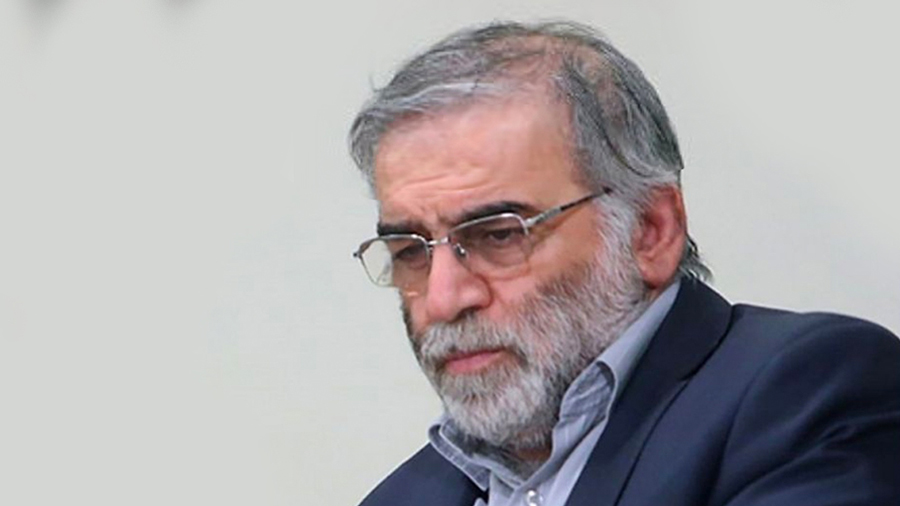A top Iranian security official on Monday accused Israel of using “electronic devices” to remotely kill a scientist who founded the Islamic Republic’s military nuclear program in the 2000s.
Ali Shamkhani, the secretary of the country’s Supreme National Security Council, made the comment at the funeral for Mohsen Fakhrizadeh, where Iran’s defence minister separately vowed to continue the man’s work “with more speed and more power”.
Israel, long suspected of killing Iranian nuclear scientists over the last decade, has declined to comment on the attack.
Fakhrizadeh headed Iran’s so-called AMAD programme, which Israel and the west have alleged was a military operation looking at the feasibility of building a nuclear weapon.
The International Atomic Energy Agency says that “structured programme” ended in 2003. US intelligence agencies concurred with that assessment in a 2007 report.
Israel insists Iran still maintains the ambition of developing nuclear weapons, pointing to Tehran’s ballistic missile programme and research into other technologies. Iran long has maintained its nuclear programme is peaceful. Shamkhani’s remarks drastically change the story of Fakhrizadeh’s killing Friday.
Authorities initially said a truck exploded and then gunmen opened fire on the scientist, killing him.
State TV’s English-language Press TV earlier reported a weapon recovered from the scene of the attack bore “the logo and specifications of the Israeli military industry”.
State TV’s Arabic-language channel, Al-Alam, claimed the weapons used were “controlled by satellite”, a claim also made Sunday by the semi-official Fars news agency.
None of the outlets immediately offered evidence supporting their claims. ”Unfortunately, the operation was a very complicated operation and was carried out by using electronic devices,” Shamkhani told state TV. “No individual was present at the site.”
Shamkhani also blamed the Iranian exile group Mujahedeen-e-Khalq as well for “having a role in this”, without elaborating. The MEK did not immediately respond to a request for comment.
Monday’s service for Fakhrizadeh took place at an outdoor portion of Iran’s defence ministry in Tehran, with officials including Revolutionary Guard chief General Hossein Salami, the Guard’s Quds Force leader General Esmail Ghaani, civilian nuclear program chief Ali Akbar Sahei and intelligence minister Mamoud Alavi. They sat apart from each other and wore masks due to the coronavirus pandemic as reciters melodically read portions of the Quran and religious texts.
Defence minister General Amir Hatami gave a speech after kissing Fakhrizadeh’s casket and putting his forehead against it. He said Fakhrizadeh’s killing would make Iranians “more united, more determined”. “For the continuation of your path, we will continue with more speed and more power,” Hatami said.











